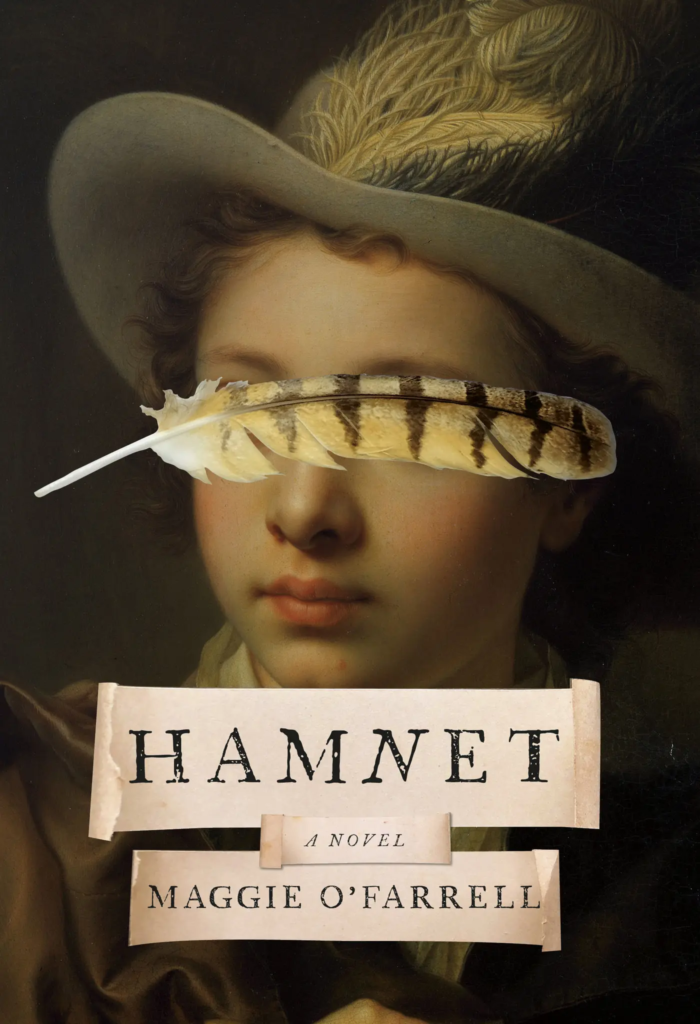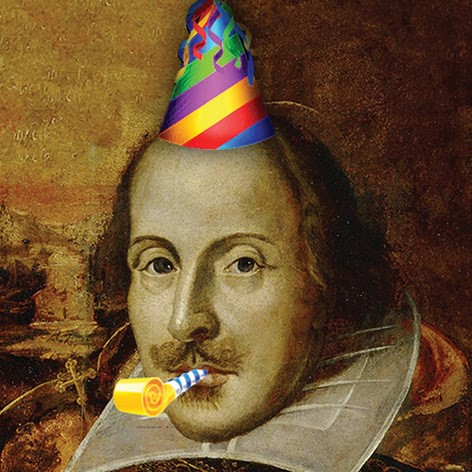
Hamnet by Maggie O’Farrell, subtitled “A Novel of the Plague,” was published in 2020. It is an amazing novel with amazing timing, coming as it did at the height of the global pandemic that disrupted all of our lives. Later than most, I have only recently read this justly celebrated novel. It explores the timeless themes of marriage and grief by reimagining Shakespeare’s early life in Stratford-upon-Avon, his relationships with his parents, his marriage to Anne (or Agnes) Hathaway, and his joy in being a father coupled with his restless pursuit of his art in the capital city of London.

I have previously read O’Farrell’s The Vanishing of Esme Lennox and The Marriage Portrait, so I knew that she is a powerful writer. This year, I read Hamnet with a group of book-minded friends, and I was glad to be able to discuss this work with other readers.
I have never read anything else that so vividly evoked the English countryside in the late 16th century, in contrast to the sights, odors, opportunities, and perils of the capital city of London. I also liked the way that this remarkable novel shed its imaginative light on the private life of young Will Shakespeare and his wooing of and marriage to local heiress Anne Hathaway. What was most enaging to me as a reader, however, were the subtle and poignant ways that this work of historical fiction conjured the universals twins of happiness and grief. There are several polished reviews available–especially those of The New Yorker, The New York Times, and The Guardian–that are more scholarly and articulate than I am. Still, I thought I would share some of the notes from my reading journal here. (Apologies for any plot spoilers or cryptic passages!)
“It is rare that a book makes me weep actual tears, but this one did when I read the scene in which Agnes is washing her son, dead of the bubonic plague, and wrapping him in his shroud.
“Beyond the human drama, and the deft psychology throughout (including Joan, the dissatisfied step-mother and necessary malicious plot-turner who shows up with a playbill for Hamlet), and the delightful evocation of the Elizabethan countryside, and the agile speculation about who Shakespeare was in his private moments, there is so much more.
“I especially like thinking, with O’Farrell in the lead, of how twins–twins changing clothes, twins as completions of each other, of cheating death through a costume ruse, and of the the roles of the natural worlds (the Forest of Arden, the herbal garden, the river bank) influenced Shakespeare’s work. I also very much liked the ending, where two kinds of magic flow: the magic of the theater and the magic of healing, the healing power of story and poetry functioning almost as a medicinal botancial. The ending carries for me that rare satisfaction of adequate explanation while maintaining a sense of mystery.”

In Other Shakespeare News:
What could be more English than a cup of tea? We were given some wonderful white peach-matcha green tea from British firm of Harney & Sons for Christmas this year (many thanks, Danielle and Luke!) I like it so much that I have reordered it twice, so I was on the alert list for their newest offering:

And it was in looking at this web advertisment that I found a link to the restored Globe Theatre in London, featured in the climax of O’Farrell’s novel, the debut performance there of the play, Hamlet. What particularly delighted me about this link to the GLOBE is that it offers a virtual tour of the performance space. If you take it, you can see, under the canopy under the stage, the depiction of the heavens, including the Sun, the Moon, and all twelve signs of the Zodiac, beautifully painted against a celestial blue. There is much more on the Globe’s site, including filmmed clips from performance and a wild bouquet of dramaturgy across the plays.
I hope you will find a way to tuck a little Shakespeare into your day. Perhaps reread your favorite sonnet, check out Hamnet from your local library, or simply reflect on his assertion that “All the world’s a stage and all the men and women merely players?” If this is true, what part do you play, and what part do you want to play?
Happy Shakespeare’s Birthday! LESLIE


Going to the Globe would be wonderful, wouldn’t it? I would opt for modern times (fewer bear-baiters outside and cut-purses inside) but I would have LOVED to have been there to witness William Shakespeare playing his own father’s ghost in the debut of Hamlet.
Very Interesting observations about Shakespeare’s family life. Did not really know he was married w/ Children. I Love the Idea of being able to Tuck a little Shakespeare into my Day by reading some of his sonnets. Link to GLOBE was great I never made it inside the Globe. But would have loved to have gone to a play back in the 1600’s
Happy birthday, Will. And thank you, Leslie, for your delightful post. I like trying out new tea and am glad to know about this one.
Wow, Leslie, that link to the GLOBE is amazing! I’ve been to the theater in person although not for a show and missed a lot of details presented here. This is technology at its best, I think.
As for HAMNET – one for my “keeper” shelf. The depth of emotions struck me too. And, not being anywhere as well informed about Shakespeare as, say, you, I was so taken with the portrayal of his family and his battle for being there for his art and his family. AND I loved how multi-facted and rich Anne was. One I’m sure to reread again. Maybe sooner than I thought now.